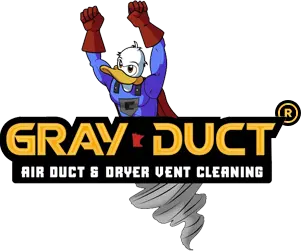Having proper filtration and changing your furnace filter regularly is crucial for maintaining healthy indoor air quality and ensuring the efficient operation of your heating and cooling system. In this blog post, we’ll explore why it’s important to have proper filtration and how changing your furnace filter can benefit your home.
Why Proper Filtration Matters?
Proper filtration is important for maintaining clean indoor air quality, which is particularly important for people who suffer from allergies or respiratory issues. Without proper filtration, your home can become a breeding ground for dust, dirt, and other particles that can trigger allergies and other respiratory issues. Additionally, dirty air filters can also reduce the efficiency of your heating and cooling system, leading to higher energy bills and potentially costly repairs.
Benefits Of Changing Your Furnace Filter Regularly
Changing your furnace filter is an easy and affordable way to maintain proper filtration in your home. Here are just a few of the benefits of changing your furnace filter:
- Improved Indoor Air Quality: Changing your furnace filter regularly can help to remove dust, dirt, pollen, and other particles from the air, resulting in cleaner and healthier indoor air.
- Energy Efficiency: A dirty air filter can restrict airflow, causing your heating and cooling system to work harder to maintain the desired temperature in your home. By changing your air filter regularly, you can improve airflow and reduce energy consumption, resulting in lower energy bills.
- System Longevity: A dirty air filter can put unnecessary strain on your heating and cooling system, leading to premature wear and tear and potentially costly repairs. By changing your air filter regularly, you can extend the lifespan of your system and avoid expensive repairs down the road.
How Often Should You Change Your Furnace Filter?
The frequency with which you should change your furnace filter depends on a variety of factors, including the type of filter you use, the size of your home, and the number of pets or occupants in your home. As a general rule of thumb, it’s recommended that you change your furnace filter every three months at a minimum. However, if you have pets or live in an area with high levels of pollution or dust, you may need to change your filter more frequently. I also suggest using a Merv rated 5-7 if you have a one-inch filter and a Merv 8 if you have a 4-inch filter.
In conclusion, having proper filtration and changing your furnace filter regularly is essential for maintaining healthy indoor air quality and ensuring the efficient operation of your heating and cooling system aka your furnace! By taking the time to change your filter regularly, you can enjoy cleaner air, lower energy bills, and a longer lifespan for your furnace. So, if you haven’t changed your furnace filter in a while, now is the time to do so! If you have any questions or comments or would love to talk about indoor air quality, call me at (952) 254-8779 or send me an email at info@grayducttechnologies.com.
Thank you for reading and have a blessed day!
Jason Giandalia
Gray Duct Technologies
(952) 254-8779



